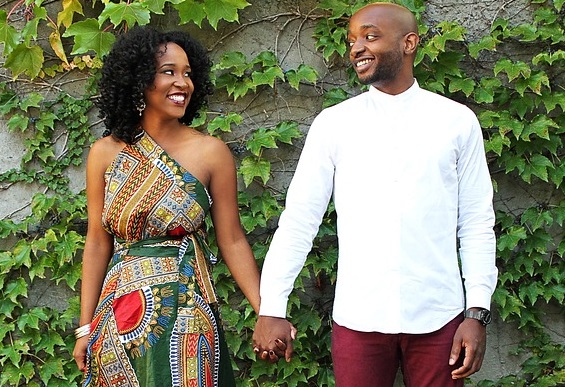

In the age of social media and 50/50 debates, dating in today’s environment is far from easy. Despite the media being oversaturated with discussions about who should make the first call or who should pay for the first date, everyone seems to have a cloudy perception of what a healthy relationship should look like—not to mention their lack of focus on healthy conflict resolution.
From poor communication to infidelity, there are several common relationship issues that many of us go through. So, what are the most effective ways to resolve them? Your AURN family would like to provide some thoughtful solutions.
1. Money
Life requires money. So inevitably those awkward money talks will come up. We often see the 50/50 warriors and antagonizers going back and forth on social media about it, arguing whether things should be split equally or if “the man” should take care of it all.
Here are some ways to address money matters and avoid financial arguments:
1. Foster open and honest communication. Discuss your financial goals, values, and expectations as a couple. Be transparent about your income, debts, and expenses. Regularly check in with each other to ensure you’re on the same page.
2. Create a budget together. Develop a joint budget that includes both income and expenses. Allocate funds for savings, bills, debt repayment, and discretionary spending. Collaboratively decide on financial priorities and adjust as necessary.
3. Set financial goals. Saving for a home, paying off debts, or planning for retirement? Work together to develop a strategy for achieving these goals. Regularly revisit and reassess your progress.
4. Assign financial responsibilities. Divide and conquer based on each other’s strengths and interests. This could include bill payment, budget tracking, or investment management. Establish clear roles to ensure accountability and avoid misunderstanding.
5. Build an emergency fund. Set aside a portion of your income each month to cover unexpected expenses. Having a safety net helps alleviate financial stress and prevents reliance on credit or loans.
6. Discuss major financial decisions. Before making significant financial decisions, such as large purchases or investments, consult and agree as a couple. Involve each other in the decision-making process to avoid conflicts and to ensure alignment with your financial goals.
7. Practice financial transparency. Be open about your individual spending habits and financial obligations. Avoid hiding debt, overspending, or making major financial decisions without consulting your partner. Transparency builds trust and allows for better financial planning.
Remember, preventing and addressing financial problems requires effort from you and your partner. Through open and honest communication, shared goal setting, and practicing financial responsibility, you can strengthen your relationship and build a solid financial foundation.
2. Communication & Comprehension
Most—if not all—relationship issues can be resolved through healthy, open, and honest communication. Does your partner shut down when you speak in a certain tone? Do they need a minute to themselves before you guys really dive into the conflict or conversation at hand? Learning your partner’s communication style, their triggers, and paying attention to non-verbal cues can go a long way.
I’m sure you’ve heard about how vital communication is in any thriving relationship, yet we often neglect the importance of comprehension. But just like it’s important to talk about those big feelings, it is also important to understand them. What good is it to vent or pour your heart out just for your partner to not want and/or be capable of seeing your perspective?
Here are some things to try to improve communication in your relationship:
1. Active listening. Give your full attention to your partner when they speak. Maintain eye contact, avoid interrupting, and show genuine interest in what they are saying. Reflect and restate what you’ve heard to ensure understanding.
2. Express emotions effectively. Learn to share your emotions in a clear and constructive manner. Use “I” statements to communicate how you feel without blaming or criticizing. This encourages open dialogue and avoids defensiveness.
3. Use “we” language. Frame discussions using inclusive language like “we” or “us” instead of “you” or “I.” This promotes a sense of collaboration and unity, emphasizing that you are both in it together.
4. Avoid assumptions. Don’t assume you know what your partner is thinking or feeling. Instead, ask for clarification and encourage them to express themselves openly. Attempted mind-reading can lead to misunderstanding and miscommunication.
5. Practice empathy. Put yourself in your partner’s shoes and try to understand their perspective. Show empathy by validating their emotions and demonstrating understanding. This helps create an environment of emotional safety and fosters connection.
6. Pay attention to non-verbal cues. Communication is not only about words; it’s also non-verbal. Be conscious of your body language, tone of voice, and facial expressions.
7. Dedicate time to talk. Set aside regular time for open and honest communication. This could be a weekly check-in or a designated date night when you discuss important matters, concerns, and aspirations in a calm and focused manner.
8. Seek clarification and ask questions. If something is unclear or you need further information, ask for clarification. Asking questions promotes deeper comprehension and avoids misunderstanding while also showing your partner that you are invested in the conversation at hand.
3. Intimacy
Intimacy deals with the physical, mental, and emotional aspects of our being, and it fosters a sense of togetherness between a couple. Beyond just sex, a lack of intimacy can leave a relationship feeling empty and soulless.
The quality of a relationship can often be judged by how frequently a couple is intimate. That can include but is not limited to conversations, dates, exclusive time together, or showering your partner in their love language.
Here are some ways to increase intimacy in a relationship:
1. Open and honest communication. Share your thoughts, feelings, desires, and concerns openly, and encourage your partner to do the same. This helps build trust and emotional intimacy.
2. Quality time. Set aside time exclusively for each other—without distractions. Engage in activities you both enjoy, whether it’s going for a walk, cooking together, or simply cuddling and talking. Regular quality time helps strengthen the emotional bond between partners.
3. Physical affection. Show physical affection regularly, such as holding hands, hugging, kissing and cuddling. Physical touch can help deepen the emotional connection and increase feelings of intimacy.
4. Explore shared interests. Find activities or hobbies that you both enjoy. It could be trying a new sport, attending a cooking class, or exploring nature. Sharing experiences and interests fosters a sense of togetherness.
5. Emotional support. Be there for each other during joyful and challenging times. Actively listen and offer understanding and empathy. When partners feel supported, they feel closer and more connected.
6. Show gratitude. Express appreciation for your partner and the things they do. Acknowledge their efforts—both big and small. These gestures create a positive and loving atmosphere in the relationship.
7. Surprise gestures and acts of kindness. Surprise your partner with small gestures or acts of kindness that show your love and care. From leaving a thoughtful note to preparing their favorite meal or planning a surprise date, these actions can reignite excitement and create a sense of intimacy.
8. Share goals and make plans. Discuss future goals and create plans as a couple. This could include career aspirations, travel plans, or personal development. Working toward common goals strengthens the bond and creates a sense of unity.
Remember, building intimacy requires effort and commitment from both partners. It is a gradual process that is also specific to your relationship’s dynamics and preferences.
Every person—and relationship—is unique, so it’s important to adapt these suggestions to you and your partner’s specific needs.
The post Can We Get It Together?: Relationship Fails and Fixes appeared first on American Urban Radio Networks.




